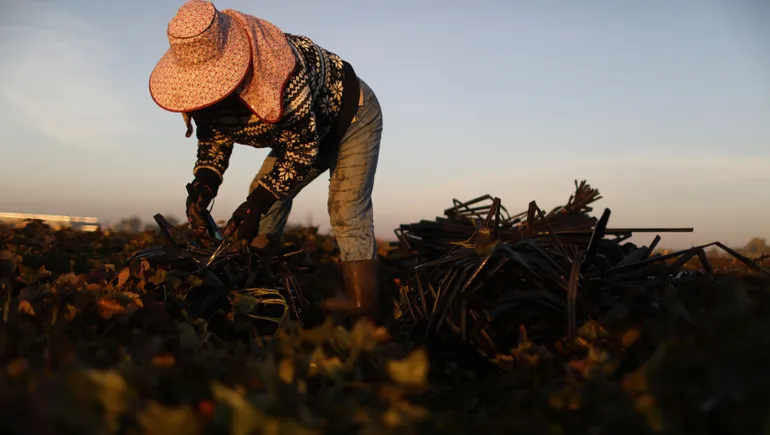House Republicans’ farm bill plan contains a hefty boost to agricultural subsidy payments while doubling down on divisive proposals around climate funding and food assistance benefits, according to a more detailed outline of the five-year spending package unveiled on Friday.
The updated framework from House Agriculture Committee Chair Glenn “GT” Thompson builds on a five-page outline released earlier this month. The proposal contains new details on how Republicans would reallocate billions of dollars under the Inflation Reduction Act — funding in part would go toward new and existing “orphan programs,” including a $150 million pilot to control feral swine.
Thompson wrote in a letter to stakeholders that his plan is a bipartisan approach that reflects the needs of farms that have struggled with stubbornly high inflation and mounting production costs.
“Each title takes into consideration the varying opinions of all who produce as much as those who consume,” Thompson wrote. “It is not one-sided, it does not favor a fringe agenda, and it certainly does no harm to the programs and policies that feed, fuel, and clothe our nation.”
Climate and nutrition groups are rallying behind a competing plan from Senate Democrats, which would keep expanded food benefits and additional Inflation Reduction Act IRA funding earmarked for climate-smart agriculture. Thompson’s plan to enhance farm subsidies may also cause a stir among grassroots organizations who say these payments are costly and favor just a minority of large producers.
The House proposal includes a 10% to 20% increase in reference prices, which is the threshold that triggers subsidy payments under the Price Loss Coverage and Agriculture Risk Coverage programs. The Senate plan would include an escalator provision similar to the 2018 Farm Bill that is expected to increase effective reference prices by at least 5% for all major covered commodities.
Farm income is forecast to nosedive in 2024 after three straight years of historic profits. Farmers say they need more support to offset losses from inflation and rising production costs, and both House and Senate bills enhance the farm safety net with improved disaster assistance and other risk management payments.
The House Agriculture Committee is expected to review Thompson’s proposal May 23. The chairman indicated that he could be open to further negotiation, saying in his letter that “my door remains open.”
“There exists a few, loud armchair critics that want to divide the Committee and break the process,” Thompson wrote. “A farm bill has long been an example of consensus, where both sides must take a step off the soapbox and have tough conversations.”



